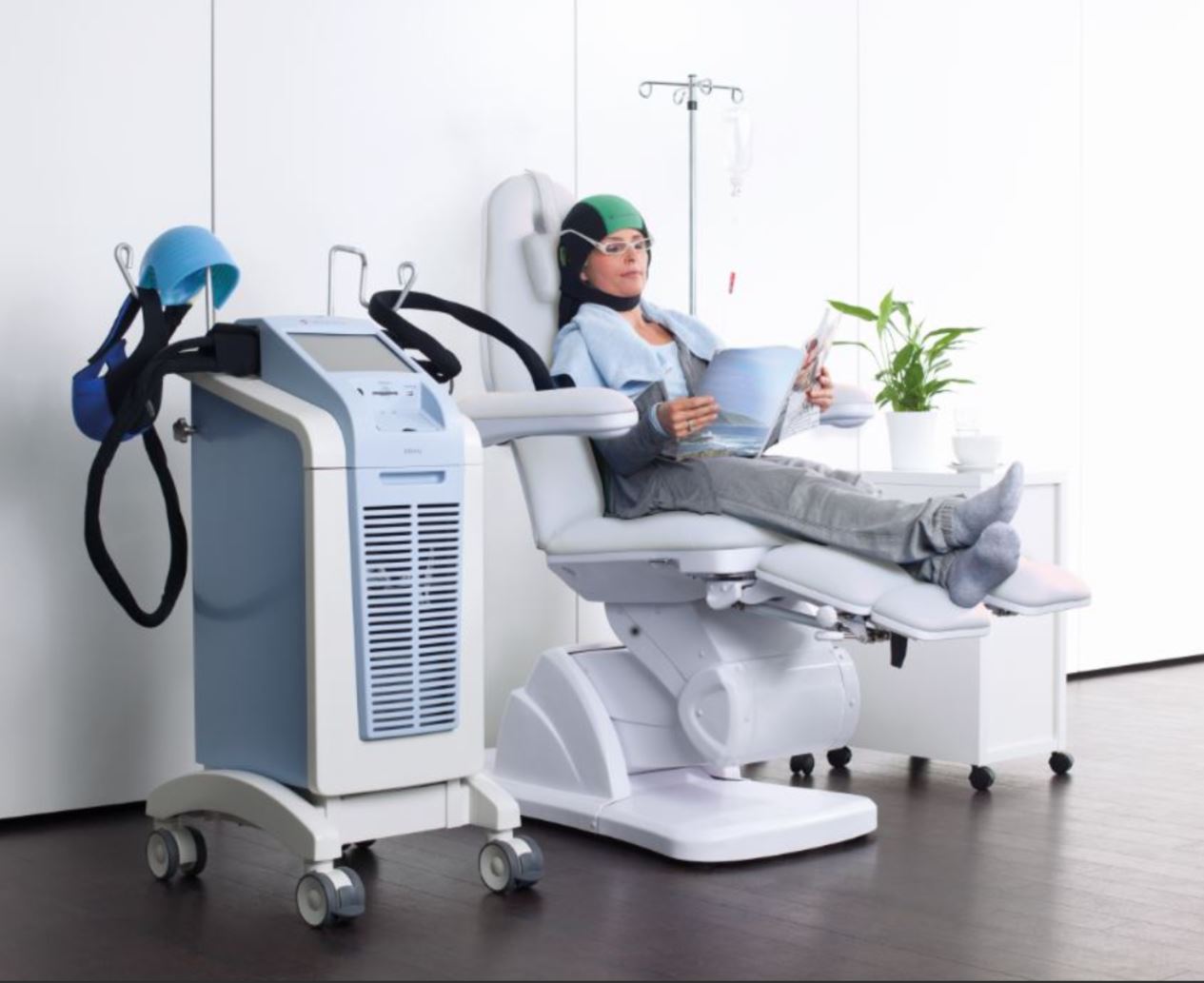UConn Health’s Carole and Ray Neag Comprehensive Cancer Center is the only Connecticut institution outside Fairfield County to offer its breast cancer patients optional scalp-cooling therapy to reduce their chances of hair loss from chemotherapy treatments.
“Chemotherapy-induced temporary hair loss is one of the most common and stressful side effects breast cancer patients experience,” says Dr. Susan Tannenbaum, chief of the Division of Oncology and Hematology at UConn Health.
Tannenbaum adds: “Anything we can do to limit a woman’s distress while she undergoes breast cancer care is essential for the patient’s overall holistic health.”
Research studies have shown that the FDA-cleared DigniCap, made by Dignitana Inc., is nearly 70 percent effective in reducing hair loss by at least half in breast cancer patients receiving chemotherapy.
While a patient undergoes intravenous chemotherapy treatments, the computerized cooling cap system circulates cooled liquid through a tight-fitting silicone cap.
The cooling therapy works to limit chemotherapy’s side effects by constricting the scalp’s blood vessels, which limits the drug’s reach to the hair follicles and also slows the rate of hair cell division.
The technology’s arrival was spearheaded by donations from UConn Health professors Dr. William B. White and Nancy M. Petry, Ph.D., of the Pat & Jim Calhoun Cardiology Center, among others, and grant funding awarded to the UConn Foundation by the CT Breast Health Initiative.
To learn more about the Neag Comprehensive Cancer Center visit: www.health.uconn.edu/cancer.



